Animal-assisted therapy is gaining popularity in Australia, and Berry Street is no stranger to the benefits of therapy animals who provide support to the children and young people we work with.
About therapy dogs
"The role of therapy dogs is to react and respond to people and their environment under the guidance and direction of their owner"1. They provide psychological or physiological therapy to individuals other than their owners2. Unlike service dogs, therapy dogs are encouraged to interact with a variety of people… and patting the pooch is highly encouraged!
The human-animal bond that occurs between an individual and a therapy dog can illicit many positive outcomes. Increasing the attachment response that triggers the hormone oxytocin increases trust in humans1. In addition, research has shown therapy dogs can help reduce stress and provide a sense of connection in difficult situations1. Using therapy dogs in response to traumatic events can assist in reducing the symptoms of depression, post-traumatic stress disorder and anxiety that may result from the trauma experienced.
Benefits of therapy dogs
Children bond quickly and closely with animals and tend to confide in them. Therapy animals, such as dogs, have contributed to countless health, social, behavioural and emotional benefits, and may have positive impacts on overall wellbeing and operate as psychological assets.
According to The Conversation, animal-assisted therapy can:
- teach empathy and appropriate interpersonal skills
- help individuals develop social skills
- quickly build rapport between professionals and clients
- improve individual’s skills to pick up social cues imperative to human relationships.
The role of therapy dogs at Berry Street
Some of the children and young people referred to Berry Street have experienced levels of trauma that make it hard for them to trust adults and talk about their situations. Therapy dogs are a source of attention and affection, which creates an uncomplicated bond of joy and attachment.
Poppy
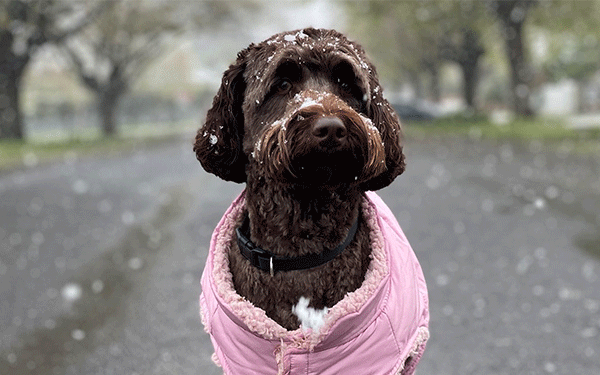
Four-year-old Poppy, a Labradoodle, looks forward to accompanying her owner, a Student Wellbeing Worker, to the Berry Street School Ballarat campus on Tuesdays and Fridays. In her role as one of the school’s therapy dogs, Poppy is adept at connecting with whoever needs some extra attention and support, whether that be a student or staff member.
Poppy loves ‘zoomies’ around the school yard, snuggling on the couch and helping the students feel safe and supported at the school.
Kahlo
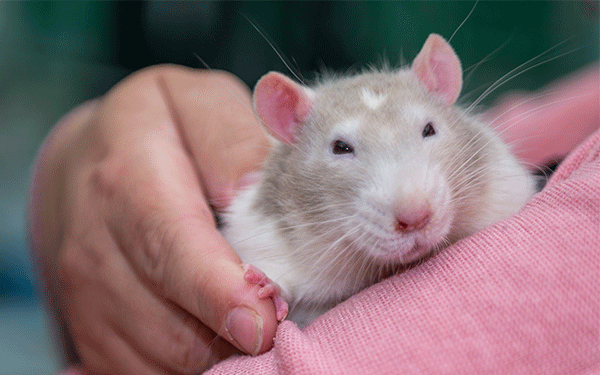
One-year-old Kahlo might be small, but she is making a big impact on our young students at the Berry Street School Morwell campus – in the last year she has supported students to complete literacy assessments, get through their immunisations and participate in group discussions.
Like all of Berry Street’s therapy animals, Kahlo loves food, especially pumpkin and seeds. She also likes getting ear scratches, laying in her little hammock and nesting in people’s hair.
Vijay
Vijay has had lots of training because he was going to become a seeing-eye dog but didn’t quite make the cut due to his anxiety. Vijay enjoys spending his day getting pats and laying at people’s feet, so he is adapting well to life at the Berry Street School Morwell campus!
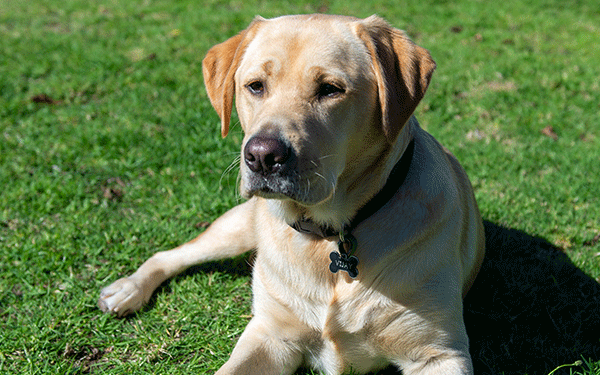
Throughout Vijay’s day, he joins our morning circle where students greet each other, participate in a positive primer and set intentions for the day. Vijay encourages calm across the campus and supports students with their learning. Vijay also supports students and staff to get fresh air and participate in activities throughout the day.
Recently, Vijay was visiting a Junior class where students were identifying each other’s character strengths. As part of the activity, students decided to identify some of Vijay’s character strengths too, which included kindness and gratitude! Students were practising and demonstrating empathy as part of this activity.
Lochie

Like many of our young people, Lochie developed incredible resilience through his challenging journey to find his calling as a therapy dog at the Berry Street School Noble Park campus. After a year of living on the streets and 6 months in a shelter, this beautiful Rottweiler X Kelpie found a loving home and trained for a year to be a certified therapy dog.
Lochie has a talent for reading a room and seeing which student, parent or staff member needs a cuddle or a play. His favourite things are playing tug, diving into bean bags, racing down the hallway, climbing into laps (even though he weighs 30kg) and sitting at the table like a human. Lochie has found more love than he could ever have hoped for from his new family of students and staff at Berry Street.
Comet
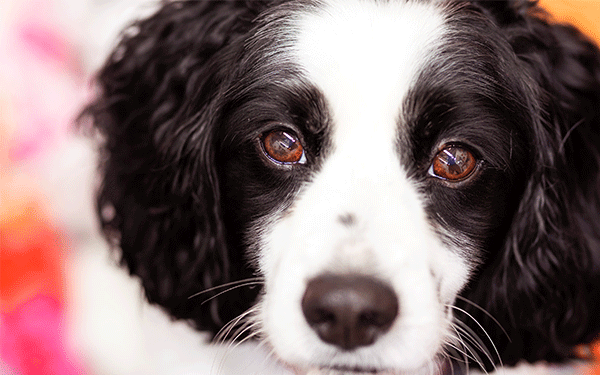
Comet is an 8-year-old Cavoodle, with a hint of spaniel, that loves being a therapy dog at the Berry Street School Noble Park campus. Comet became a certified therapy dog 2 years ago and has loved working with young people when they are having a bad day, need help focusing on their learning or need some additional TLC.
Boofa
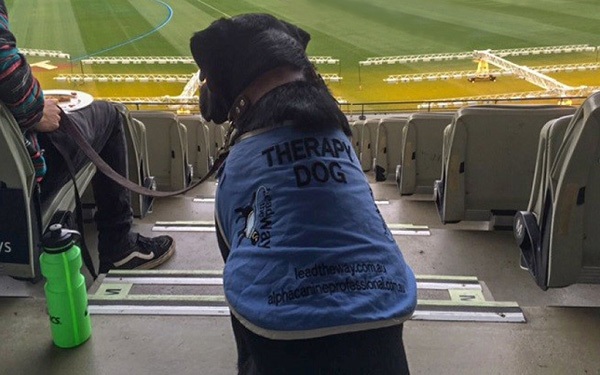
Boofa supported Berry Street’s residential care homes, which accommodate four adolescents presenting with challenging behaviours. Boofa provided young people with emotional support, either by sitting with them or encouraging playtime. He created a sense of calm in the home, making it feel more homely through his presence, and boosted the well-being of the young people and staff members. He helped to create warm and positive memories for young people in care. In 2018, Boofa and his owner, Mark received the Residential Worker of the Year Award. In 2021, Boofa and Mark left Berry Street to go and support other children and young people in a different setting.
Murphy

Two-year-old Murphy, a Cavalier King Charles, has trained hard to be a therapy dog and loves his job.
Murphy supports staff and students at the Berry Street School Morwell in lots of ways; from welcoming them in the morning with cuddles to helping them to regulate their emotions and behaviours. He spends one on one with students who need extra support, by sitting with them in a quiet area and supporting them to re-engage in the classroom.
Murphy loves apples and playing with the students and his toys. There’s not much he doesn’t like other than having to stay at home instead of coming to school.
Phoebe

Therapy dogs can also increase motivation for learning. Phoebe, an Education Support dog at the Berry Street School in Ballarat, helps students get through the day without trouble. Phoebe spends her days supporting students who may have social and emotional learning needs.Phoebe likes the rubbish bin, food, naps, pats, antlers, puddles, walks, human mum, yoghurt treats, belly scratches, low-hanging food, crumbs, and of course, her students. Phoebe dislikes being alone, being in the car, being told off, blackberry bushes, lettuce and baths.
Therapy dogs can also increase motivation for learning. Phoebe, an Education Support dog at the Berry Street School in Ballarat, helps students get through the day without trouble. Phoebe spends her days supporting students who may have social and emotional learning needs.
Phoebe likes the rubbish bin, food, naps, pats, antlers, puddles, walks, human mum, yoghurt treats, belly scratches, low-hanging food, crumbs, and of course, her students. Phoebe dislikes being alone, being in the car, being told off, blackberry bushes, lettuce and baths.
Neon
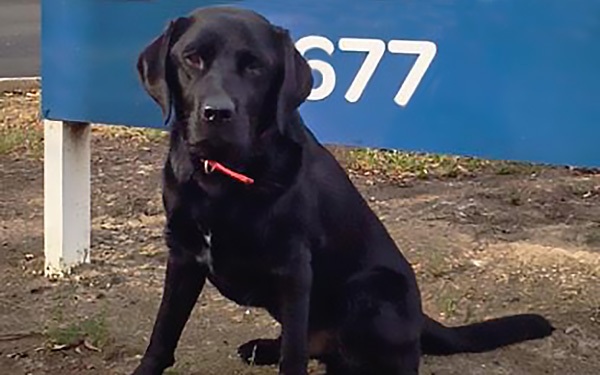
Neon is a much-loved therapy dog that works in Berry Street’s Northern Region in the Restoring Childhood program. Neon spent the first two years of his life training to be a seeing-eye dog but he was just too playful, that’s how he came to be a therapy dog. Neon is a skilled and caring listener, he seems to instinctively know when somebody is feeling unsafe or in need of cuddles – he is adored by staff and clients.
1. The Conversation, Therapy dogs can help reduce student stress, anxiety and improve school attendance, published on 20 March 2018
2. Alliance of Therapy Dogs, What is the difference between a Therapy Dog vs a Service Dog?, published on 12 March 2018
*Name has been changed in the interest of privacy. The models and volunteers pictured are not connected to the case study.



